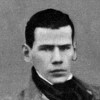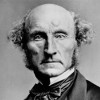“ When a person is possessed of any power, there is no more required to convert it into action, but the exertion of the will ”
David Hume, A Treatise of Human Nature (1738). copy citation
| Author | David Hume |
|---|---|
| Source | A Treatise of Human Nature |
| Topic | action power |
| Date | 1738 |
| Language | English |
| Reference | |
| Note | |
| Weblink | http://www.gutenberg.org/files/4705/4705-h/4705-h.htm |
Context
“A master is such-a-one as by his situation, arising either from force or agreement, has a power of directing in certain particulars the actions of another, whom we call servant. A judge is one, who in all disputed cases can fix by his opinion the possession or property of any thing betwixt any members of the society. When a person is possessed of any power, there is no more required to convert it into action, but the exertion of the will; and that in every case is considered as possible, and in many as probable; especially in the case of authority, where the obedience of the subject is a pleasure and advantage to the superior.
These are therefore the principles of union or cohesion among our simple ideas, and in the imagination supply the place of that inseparable connexion, by which they are united in our memory.”
source



